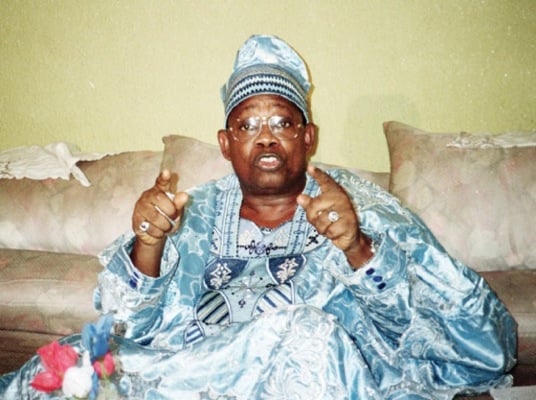BY OMOYA SIMULT
“One day, we arrested a Cabinet Minister for engaging in corruption. On the day he was arrested, Members of Parliament from his ethnic group came to my office and said my only claim to fame was that I was in the business of finishing their tribe. ‘He is our thief,’ they said. ‘Yes, he is a thief, but he is ours. You should not arrest him.”
The above is what I consider the highlight of a speech delivered at the 3rd Anti-Corruption Convention in Kampala on December 2, 2013 by Professor P.L.O Lumumba. I consider it my highlight, not because the act of Members of Parliament depicted therein deserves the teeniest compliment but because it artfully, very vividly, captures a terrible debasement. Professor Lumumba, who once served as the Director of Kenya Anti-Corruption Commission, with a booming voice reminiscent of proselytisers of the early days, was facing hundreds of Africans while he berated what I have designated as ‘omowanism’ in this article.
Omowanism is a term I have coined from three Yoruba words: ‘omo’, ‘wa’, and ‘ni’. Literally, these three words together mean ‘he is our child’. However, ideologically, this concept of omowanism encapsulates the chauvinistic tendencies and mostly unvoiced obligations towards another with whom one shares a sense of belonging, which make one shower favours on them, with little or no regard for their meritoriousness. These favours are usually in the form of appointment, employment, business opportunity, electoral bias, impunity, etc. Among other things, as can be deduced from Lumumba’s revealing anecdote, omowanism makes us realise there are two types of thief: ‘a thief’ and ‘our thief’. ‘Our thief’ is purportedly honourable, thus deserving of no punishment, while ‘a thief’ is definitely punishable, thus deserving of no honour, no mercy.
Advertisement
There is a supposed justification for this. In many ethnic groups in Nigeria, indeed even Africa, a child is seen as a communal responsibility, worthy of care, love, defence and support from every member of the society. When a child becomes successful, every one wants to identify with him, to share in his success and appropriate his accomplishment as trophy for the community. There is the pride that stems from sheer relatedness, a vicarious pleasure derived by people who share a sense of belonging with him, whether or not his achievement translates into an improvement in their living standard or gives them an edge. But more often than not, the blind want to initiate or perpetuate this chauvinistic tendency, this pleasure or pride that stems from relatedness, instigates many irrational decisions, especially ones that put belongingness before ableness, affinity before equitability.
The sources elude me now, but after thirty years of presumed diligent service to his fatherland, a senior civil servant was ready for retirement. It was, of course, also about the time for recruitment of new staff members in the federal parastatal for which he had been working. In gratitude for his many troubles over the decades, which was besides the anticipated staggering gratuity, he was granted the rare privilege of handpicking and commending one of the thousands of applicants, who, ceteris paribus, could be certain of having secured employment. It so happened that a beloved relative of the said senior civil servant was among the applicants, toward whom, omowanically, his commendation gravitated. But an exam and interview had been conducted, in which this beloved relative had distinguished himself by thoroughly performing below average. A fascinating case of omowanism, at the expense of perhaps a hundred far more capable hands, to the eternal glory of the relative’s miracle-working god, the senior civil servant brought his office to bear on the situation, and the underqualified was gainfully employed.
From a microcosmic perspective, just before the period of this writing, I was an outgoing honourable member of the Students’ Representative Council, University of Ibadan, repping Lord Tedder hall. In a couple of days, the new assembly would have its inaugural sitting, and elections for the posts of principal officers would hold. Before now, there was a window for application, during which aspiring honourables obtained forms.
Advertisement
The custom is to submit one’s form through a returning honourable, after which one is invited for an interview session, after which a general election is held. Weeks ago, an aspiring honourable approached a returning honourable from another constituency and gave him his form to submit.
The returning honourable seized the opportunity to solicit for his vote and support, having stated plans and experiences which made him suitable for the post of the speaker. The aspiring honourable admitted that the returning honourable was best suited for the office. Nonetheless, he would not vote him anyway because his constituency also had a candidate contesting for same post and he had to be loyal. Loyalty to his constituency meant voting and supporting their ‘child’ every time, even when the child was obviously unfit for the post for which he was contending.
A most hilarious incident, the aspiring honourable never made it to the house. The returning honourable simply failed to submit his form, which meant the aspiring honourable couldn’t be invited for interview, couldn’t run for elections. Debates are ongoing on the tactlessness of the aspiring honourable and the illegality of the returning honourable’s inaction.
But magnify this microcosmic scenario into national and international dimensions. What you have are sorry cases of nepotism, ethnocentricity, religious bigotry and jingoism. 2015 elections in Nigeria, like many others before it, were omowanistic. The North voted massively for Buhari (special thanks to Kano votes, yes?), not because he was the best man for the job but because he was ‘their child’ and it was ‘their turn’.
Advertisement
It is true that omowanism is ubiquitous. Not even the so-called advanced countries are spared: in the air still lingers the controversial cases of Jared Kushner and Ivanka Trump of America. In any case, the question arises: in a supposed attempt to advance one’s cause, to the detriment of others, how far can one go? For the betterment of humanity, for our common good, how progressive is it that we divest ourselves of every prejudice and deal in fairness? At the end of it all, however one looks at it, before we are categorised based on race or religion or ethnicity or political party or sexual orientation, we are first of all humans. The concept of omowanism is flawed and retrogressive; we should all embrace equitability and meritocracy.
Simult writes from University of Ibadan, and may be contacted via [email protected].
Views expressed by contributors are strictly personal and not of TheCable.






